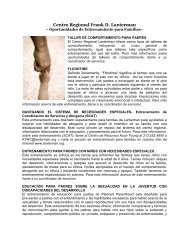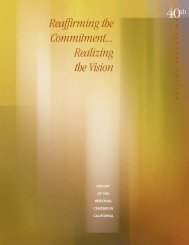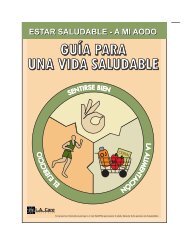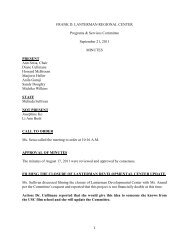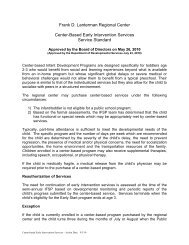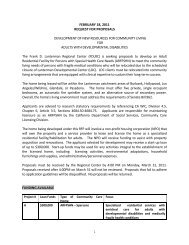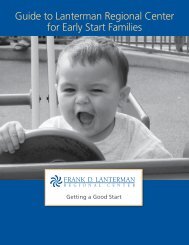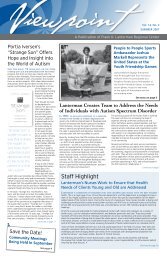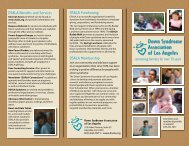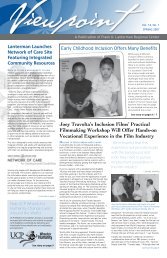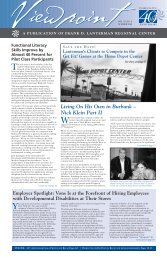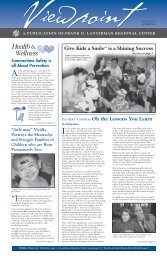Conservatorship - Frank D. Lanterman Regional Center
Conservatorship - Frank D. Lanterman Regional Center
Conservatorship - Frank D. Lanterman Regional Center
Create successful ePaper yourself
Turn your PDF publications into a flip-book with our unique Google optimized e-Paper software.
IntroductionAs your child with special needs approaches the age of 18 andbegins to transition into adulthood, there are many changesthat you, as their parent, need to take into consideration and beprepared for. One of these changes is that under the law, yourchild at the age of 18 will be viewed as an adult, and will havethe right to make all decisions about his or her life, includinghealth care, finances, work or school, social life and livingsituation regardless of the level of your child’s special needs.The question you need to ask yourself is whether yourchild is ready and has the ability to make adult decisionsindependently. If you believe that your child’s disability limitshis or her capacity to do so, or that your child is subject toundue influence, there is a way that you can remain involvedand continue to protect your child’s well-being while at thesame time encouraging him or her to exercise self-reliance .and independence. This is through a legal proceeding .called conservatorship.Generally, conservatorship for adults with developmentaldisabilities is achieved through a limited conservatorship (othertypes of conservatorship are available in California), which isa court proceeding where a judge gives a responsible person(called a limited conservator) certain rights to care for an adultwith a developmental disability who has a limited capacity tomake decisions independently (called a limited conservatee),enabling them to act on behalf of an adult in one or more lifeareas, subject to periodic reviews by the court.Not all adults with developmental disabilities require a limitedconservatorship, and in some cases, if the main objective is themanagement of the funds of a person with a developmentaldisability, a special needs trust or representative payeeship canbetter meet those objectives.A Booklet for <strong>Lanterman</strong> <strong>Regional</strong> <strong>Center</strong> Families 1




